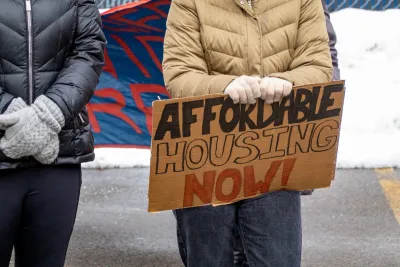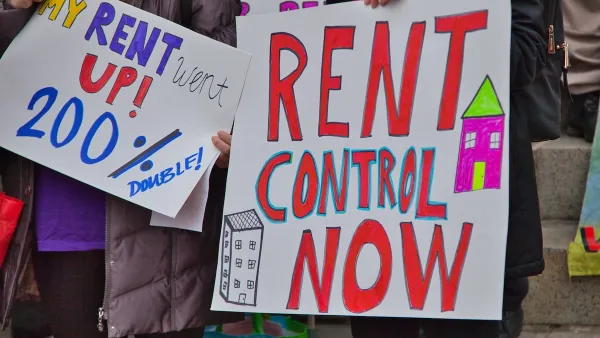An Urban Institute analysis outlines three ways federal lawmakers can support housing programs that provide permanent affordable housing for the households that need it most.

In a piece for the Urban Institute, Samantha Atherton and Samantha Fu highlight the importance of housing costs to most voters — and the lack of effective messaging around housing policy coming from political candidates seeking office this November.
According to the authors, “Permanently affordable housing, or housing that is insulated from the private, speculative market, is one solution to the housing crisis that both Democrats and Republicans favor.” Even a majority (60 percent) of Republicans reported they would support a candidate who has a plan for permanently affordable housing.
Expanding the nation’s stock of permanently affordable housing is one way to decommodify housing, or decouple access to housing from the ability to pay for it.
The authors outline three strategies that the federal government could undertake to create a supply of permanently affordable housing and alleviate the housing crisis growing across the nation.
The three policy proposals include creating a federal Green Social Housing Development Authority responsible for building and maintaining affordable housing units. “The authority would serve as a vehicle for the federal government to acquire distressed real estate, public land, investor-owned vacant properties, expiring low-income housing tax credit properties, and properties with track records of landlord exploitation and repair and retrofit them.” The properties could then be transferred to nonprofits, housing authorities, resident cooperatives, or local governments for long-term management.
Other suggestions include providing federal funding for state and local housing entities and building capacity for democratic community control of housing to further decommodify housing and empower residents to have decision-making power in their community. “The federal government could help build residents’ and communities’ capacities to engage in these models by providing technical assistance and funding initiatives to drive community engagement and organizing.”

Analysis: Cybertruck Fatality Rate Far Exceeds That of Ford Pinto
The Tesla Cybertruck was recalled seven times last year.

National Parks Layoffs Will Cause Communities to Lose Billions
Thousands of essential park workers were laid off this week, just before the busy spring break season.

Retro-silient?: America’s First “Eco-burb,” The Woodlands Turns 50
A master-planned community north of Houston offers lessons on green infrastructure and resilient design, but falls short of its founder’s lofty affordability and walkability goals.

Test News Post 1
This is a summary

Analysis: Cybertruck Fatality Rate Far Exceeds That of Ford Pinto
The Tesla Cybertruck was recalled seven times last year.

Test News Headline 46
Test for the image on the front page.
Urban Design for Planners 1: Software Tools
This six-course series explores essential urban design concepts using open source software and equips planners with the tools they need to participate fully in the urban design process.
Planning for Universal Design
Learn the tools for implementing Universal Design in planning regulations.
EMC Planning Group, Inc.
Planetizen
Planetizen
Mpact (formerly Rail~Volution)
Great Falls Development Authority, Inc.
HUDs Office of Policy Development and Research
NYU Wagner Graduate School of Public Service




























